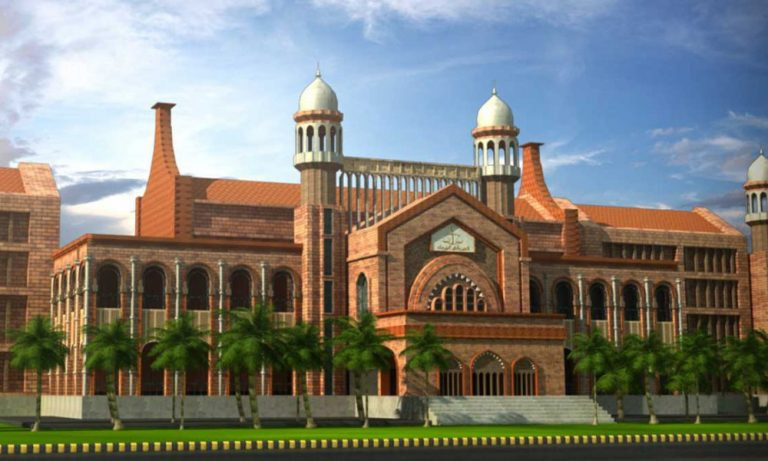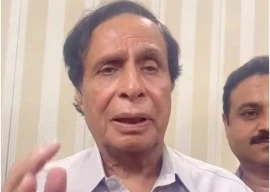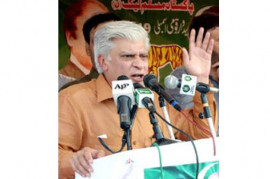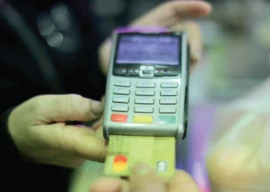
The Lahore High Court (LHC) on Friday directed the concerned authorities to conduct a test identification parade (TIP) of the accused persons who are sent to jail within 48 hours.
LHC Justice Tariq Saleem Sheikh announced the order during the hearing wherein different petitioners had been awaiting the TIP since May 25.
However, Justice Sheikh on the aforesaid matter directed the sessions judge Multan to look into the matter personally and ensure that the petitioners’ TIP is carried out within two days.
In his judgment, the LHC justice passed eight directions revolving around conducting TIP and proposing action against those Investigation Officers (IOs) if any delinquency proved on their part.
It is pertinent to mention that on May 9 Pakistan Tehreek-e-Insaf (PTI) workers had taken to the streets across the country to protest against the arrest of the party chairman.
Read SC says identification parades unsafe
The protest turned violent as the workers allegedly blocked roads, battled with law enforcement agencies and caused extensive damage to public and private property. To quell the situation, the deputy commissioners issued preventive detention orders under section 3(1) read with section 26 of the Maintenance of Public Order Ordinance, 1960 (MPO), against various people in their respective districts.
First information reports (FIRs) were also registered for breaches of law against nominated and unidentified accused persons.
The accused petitioners claimed that they were not involved in the incidents of May 9. They sought direction from concerned quarters for holding the TIP so that they could begin the procedures for their release. They alleged that the government is deliberately delaying the process merely to keep them imprisoned.
The assistant advocate general (AAG) vehemently denied any wrongdoing on the part of the administration. He stated that the May 9 incidents were unprecedented in the country’s history.
The people who took to the streets that day were in large numbers, and many were arrested. There is a long waiting list for the TIP, and the petitioners will be summoned when their turn comes, added the AAG.
During the hearing, Justice Sheikh observed that “every human being has the right to be treated with dignity and to have his liberty and security respected.”
“Other individual rights become increasingly vulnerable, if not illusory, without an adequate guarantee for human freedom and security,” added Justice Sheikh.
The LHC justice further observed that the most painful aspect of pre-trial detention is that it benefits the person who is found guilty when criminal litigation concludes rather than the one who is determined innocent.
On the proof of guilt, an accused may be compensated for his suffering and distress by deducting the duration of custody from the sentence imposed by the court’s final verdict. As a result, when an accused is convicted and sentenced to imprisonment, the period of pre-trial detention may not bring him any additional harm. However, if the accused is ultimately acquitted, then the entire episode of pre-trial detention remains solely as a trauma, anguish and stigma for him, besides the financial and social costs he has suffered, the LHC justice further noted.
Evidently, the current practice for TIPs is inefficient. The delay in conducting the test following the accused’s arrest also compromises the credibility of the procedure. Therefore, the courts insist that it should be conducted as early as possible after the arrest of the accused. Besides causing unnecessary hardship to the accused, such delays impact his fundamental rights to liberty, dignity, due process, and a fair trial.
Also read In a first, SC summons judicial officer for carrying out faulty identification
Directions to conduct TIP
- In all cases where the area magistrate commits an accused to jail for the TIP, he shall immediately forward a copy of his order to the session judge. He shall fix it as a “TIP Case” in his cause list to ensure the accused is produced before him after the TIP.
- If, for any reason, the magistrate who sends an accused to jail for the TIP is not the area magistrate, he shall also forward a copy of his order to him.
- Immediately on receipt of a copy of the magistrate’s order as aforesaid, the sessions judge shall depute a judicial magistrate/special judicial magistrate for holding the TIP, who shall direct the investigating officer to take the requisite steps and conclude the exercise within 48 hours.
- If the sessions judge has designated a JM/SJM in any area for the TIPs, he shall direct him, or if he is not available for any reason, depute another JM/SJM for holding the TIP. Such JM/SJM shall also conclude the exercise within 48 hours.
- If the TIP is not done within 48 hours as aforesaid, the JM/SJM shall bring the matter to the notice of the session judge and the police head concerned. If he finds any delinquency or dereliction of duty by the Investigating Officer, he shall also recommend action against him. In any case, the JM/SJM shall ensure the TIP is held the next day.
- The JM/SJM concerned shall promptly forward his report to the sessions judge after the TIP is done.
- The sessions judge’s office shall prepare a separate file for all TIP requests and place them on the court’s cause list until the matter is disposed of.
- Where the matter relates to a special court/anti-terrorism court and the investigating officer requests it for the TIP of an accused, it shall also ensure that it is done within 48 hours.




















COMMENTS
Comments are moderated and generally will be posted if they are on-topic and not abusive.
For more information, please see our Comments FAQ